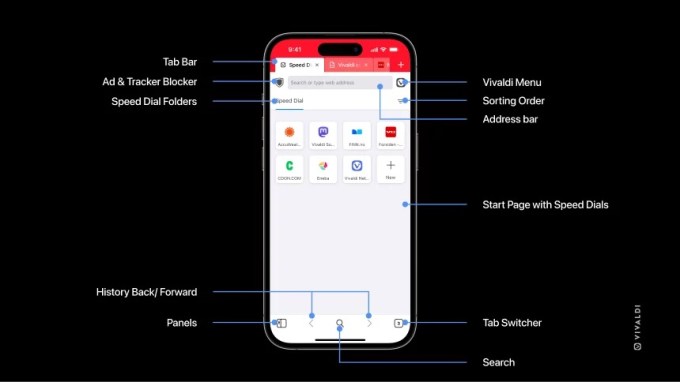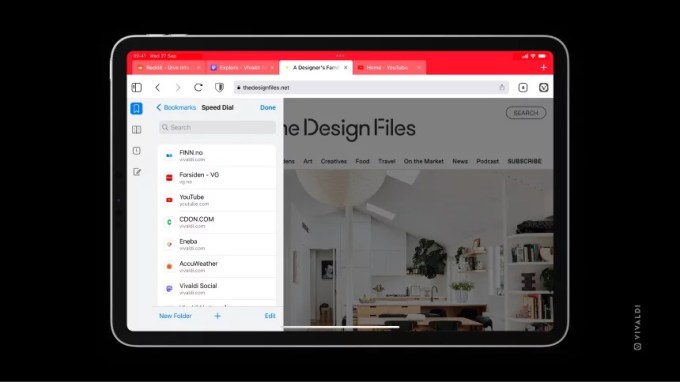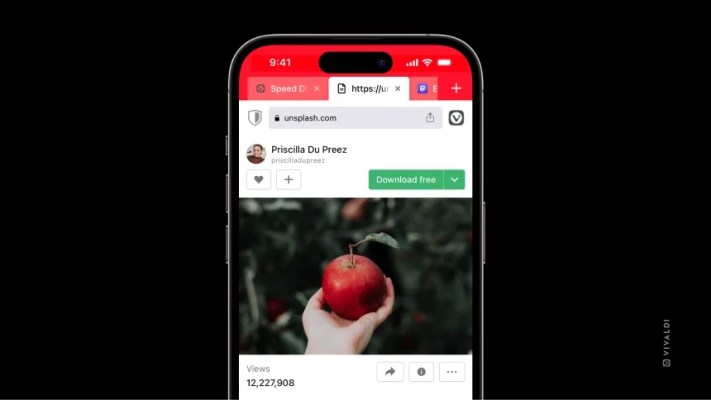Almost eight years after former Opera CEO Jon von Tetzchner launched a new browser for desktop users, his company (Vivaldi) has introduced its iOS version today.
As it’s mandatory for browsers on iOS today to use WebKit as the core engine, Vivaldi uses the same engine. Von Tetzchner told TechCrunch that this was the primary reason they had to start building the iOS version from scratch. Notably, the company launched its browser for Android devices back in 2018.
Von Tetzchner mentioned that the upcoming EU regulations would hopefully allow developers to use engines other than WebKit for better performance and customization.
Vivaldi for iOS offers a desktop-like tab bar, so you can see what other tabs are open without going to the tab switchers. If you don’t like this view, you can turn it off from settings.
The tab switcher gives you access to open tabs, private tabs, synced tabs with other Vivaldi instances and recently closed tabs. A long-press on the tab switcher will let you quickly open a new or a private tab or close the current tab.

Image Credits: Vivaldi
Any new blank tab page will show you “Speed Dials,” which is Vivaldi speak for bookmarks, and you can customize them according to your preference.
Vivaldi for iOS also offers a handy notes feature and a reading list feature — both of these features can be synced across devices.
Additionally, the new app offers an in-built tracker blocker and ad blocker, custom app icons and the ability to easily switch between search engines.
Along with the iOS version, Vivaldi is launching its browser on iPad as well. It has made a sidebar for the iPad, which lets you access things like bookmarks, reading lists, history and notes.

Image Credits: Vivaldi
Von Tetzchner told TechCrunch that Vivaldi has 2.5-3 million users across platforms. The company generates revenue from deals with various search engines — von Tetzchner emphasized that Google is not one of them.
With this launch on iOS, Vivaldi is now present on multiple platforms including Windows, Android, Mac, Linux, Raspberry Pi and even in cars through Android Auto. Last September, Google included Vivaldi in the Play Store for Android Auto.
